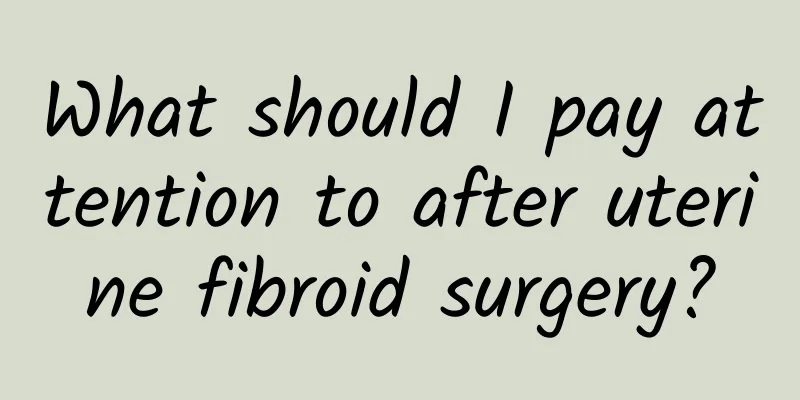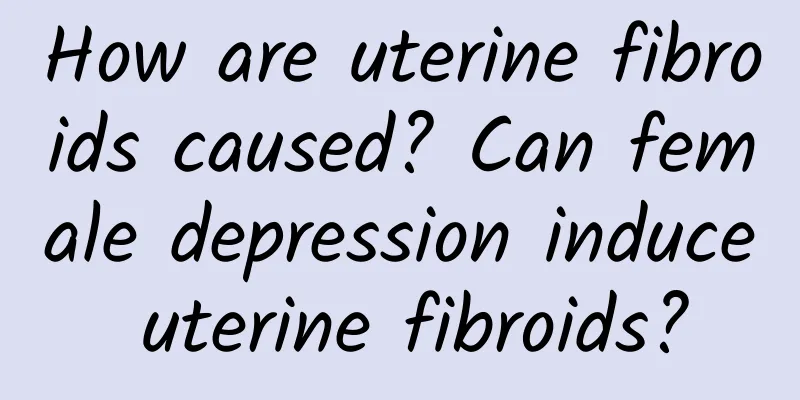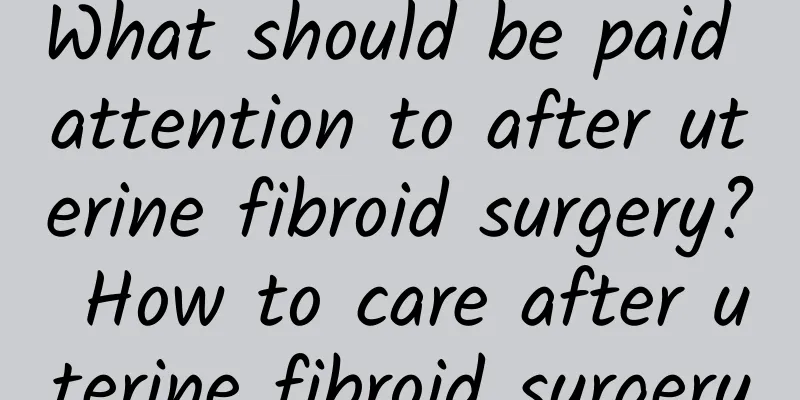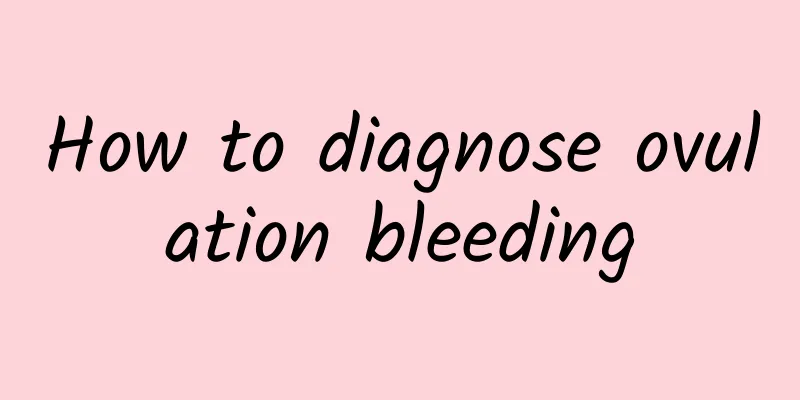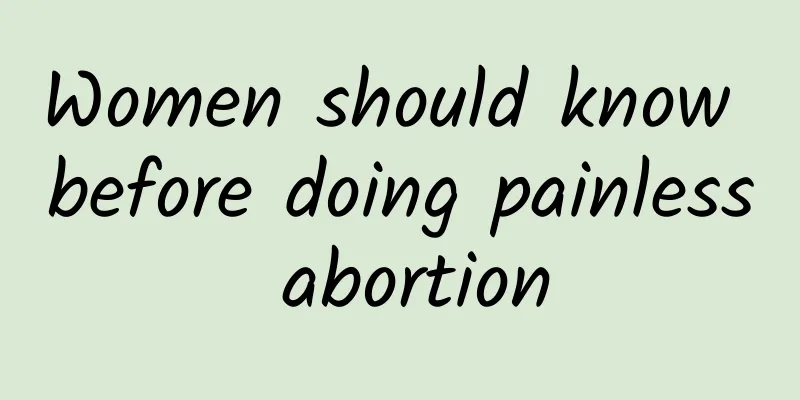What can I eat to make my uterine fibroids grow slower? What can I eat to make my uterine fibroids smaller?
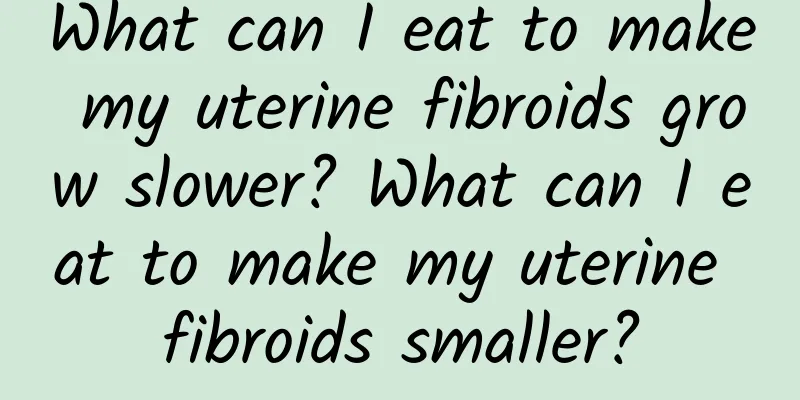
|
Uterine fibroids are benign tumors of the myometrium of a woman's uterus, which are mainly composed of smooth muscle cells. Although most uterine fibroids are asymptomatic, some patients may experience symptoms such as increased menstrual flow, prolonged menstrual periods, and abdominal pain. For women with uterine fibroids, they may wonder how to help the uterine fibroids become smaller and control their growth rate through diet. Therefore, this article will discuss the relationship between uterine fibroids and diet, and provide some foods that can help uterine fibroids grow slowly. Let’s be clear: there is no definitive evidence that diet can directly change the size of uterine fibroids. However, some research suggests that with the right diet, we may be able to slow the growth of uterine fibroids and even potentially help them get smaller over time. Here are some foods to try. First, high-fiber foods. Fiber-rich foods such as vegetables, fruits, whole-wheat breads and cereals can help slow down the digestion process and reduce the body's absorption of estrogen. High-fiber foods also help control weight and maintain a healthy hormone balance. Therefore, eating more of these foods may help slow the growth of uterine fibroids. Second, low-fat foods. Fat is a storage of estrogen, and excessive fat intake may lead to increased estrogen levels, thereby stimulating the growth of uterine fibroids. Therefore, it is recommended to choose low-fat foods such as fish, lean meat, beans, and dairy products with low fat content. Third, foods rich in antioxidants. Some studies have shown that antioxidants have the effect of inhibiting tumor growth. For example, vitamin C, vitamin E and beta-carotene all have antioxidant effects and can protect cells from damage by neutralizing free radicals. Moreover, antioxidants can also enhance the function of the immune system and help the body resist various diseases. Therefore, it is recommended to eat more foods rich in antioxidants, such as citrus fruits, spinach, carrots, tomatoes, etc. We need to be clear that while diet may help slow the growth of uterine fibroids, it cannot completely cure them. If uterine fibroids cause severe symptoms or discomfort, it is recommended to seek medical attention in time and receive further treatment under the guidance of a doctor. Although there is no definitive evidence that diet can directly change the size of uterine fibroids, through proper diet, we can slow down their growth rate and may help them gradually become smaller. High-fiber foods, low-fat foods, and foods rich in antioxidants are all worth trying. The most important thing is to seek medical attention in time and receive treatment under the guidance of a doctor while controlling your diet to achieve better results. |
<<: What are the effects of a 2mm uterine fibroid? Do 2mm uterine fibroids need to be treated?
>>: What medicine is effective for uterine fibroids? What medicine can eliminate uterine fibroids?
Recommend
How to quickly relieve vulvar itching?
The causes of vulvar itching are different, and t...
Precautions in the treatment of candidal vaginitis
Patients with candidal vaginitis should pay atten...
Women should choose the right method for abortion. How to nourish after the operation? What to eat after abortion to recover quickly
Abortion is a way to terminate pregnancy. There a...
Experts teach everyone how to correctly understand chronic adnexitis
Many female friends may be unfamiliar with chroni...
What are the treatments for adnexitis?
Medical research shows that adnexitis is a common...
Obesity not only makes you more susceptible to metabolic syndrome, but also the three highs, heart disease, and cancer!
The metabolic department often receives visits fr...
What causes amenorrhea?
Abnormal amenorrhea is caused by many reasons. So...
What are the common symptoms of pelvic inflammatory disease?
What are the common symptoms of pelvic inflammato...
How to treat moderate cervical erosion
Moderate cervical erosion can be treated with med...
Correct exercise method for patients with threatened abortion
Pregnant mothers still only know about resting in...
What are the symptoms of amenorrhea in women
Understanding the symptoms of the disease can hel...
How to quickly relieve dysmenorrhea
In daily life, many female friends are troubled b...
What are the benefits of foot bathing for the uterus? Promote blood circulation
Persisting in foot soaking is very beneficial to ...
Disease factors of hypothalamic amenorrhea
Hypothalamic amenorrhea is caused by a decrease o...
What are the common methods of treating ovarian cysts?
Ovarian cysts, I believe all female friends are f...
